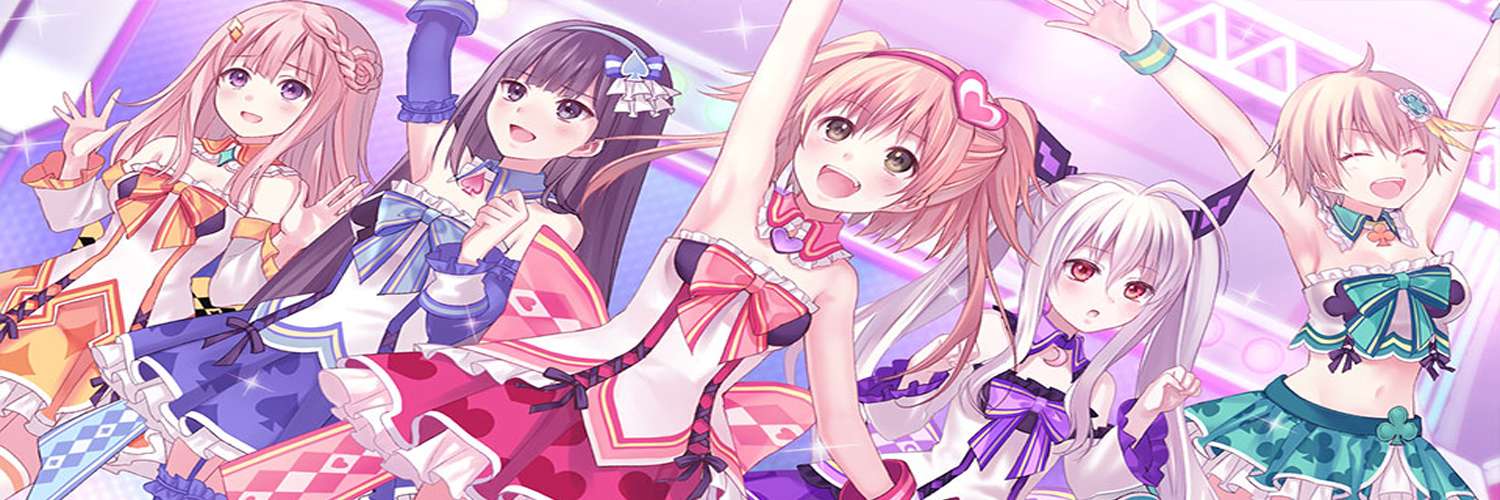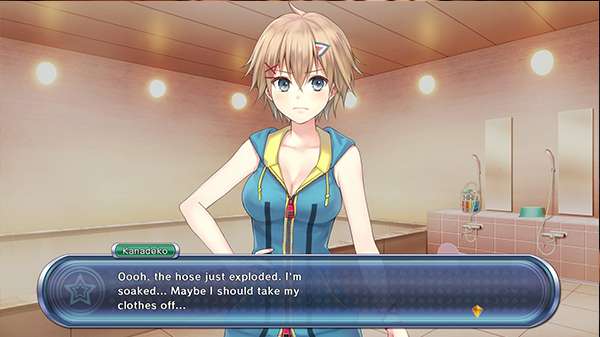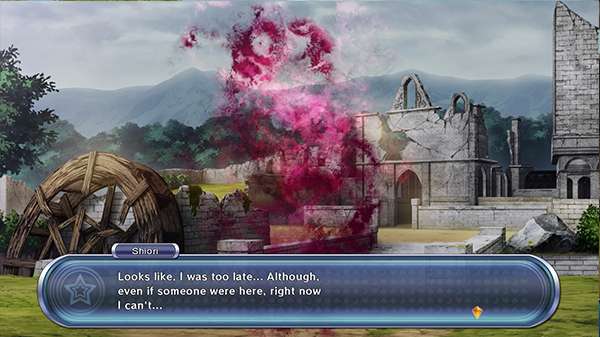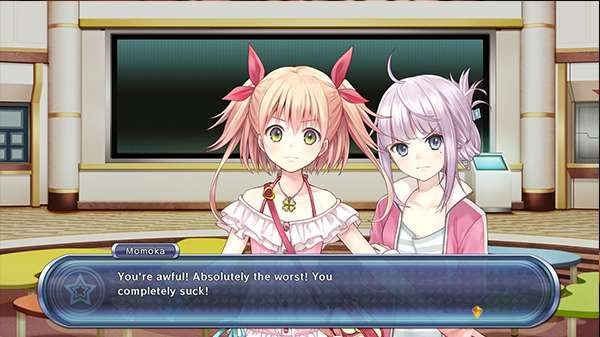
Omega Quintet PS4 Review
In case it wasn’t blatantly obvious at this point, Compile Heart tends to cater to a very specific crowd with their output of RPG games. Namely, the Otaku crowd who enjoy the concepts of Moe in all of its adorable, occasionally awkward forms. With the breakneck speed in which the Neptunia games are released, Compile Heart and Idea Factory must be making serious bank off of their fanservice-filled franchise, but with their debut onto the Playstation 4, the RPG makers have decided to start the new generation off with a new series that focuses on another popular Japanese trope: pop idols.
Omega Quintet is the name of the game, and singing songs and saving the world is the main goal of the cast of teenage characters clad in frilly skirts and microphones. The game features a post apocalyptic setting where the last remnants of humanity are sectioned off into a few clustered cities as they are being routinely attacked by interdimensional monsters known as the Blare. The only ones with the power to repel the Blare are the Verse Maidens, a group of female singers who are powered by the support of their adoring fans. While witnessing the exploits of the veteran Verse Maiden Momoka, main character Otoha and her childhood friend Takt are caught in the middle of a Blare ambush, to which Otoha unleashes a hidden power that makes her a Verse Maiden candidate, thus setting the stage for her story and the newest generation of Verse Maidens.

If all that sounded like the plot of five different Anime, you would be correct in assuming that Omega Quintet has a bit of a scattered message. On the one hand, there is a meta commentary about the trials of being a Pop Idol, including tireless public appearances and the pressure to retire at an early age. On the other, there’s Otoha’s reliance on Takt to give her the emotional support to unleash her inner talents, a burden that is soon spread out to all the other Verse Maidens, which is kind of demoralizing in how it takes the mere presence of the male character in order for his harem-er, party members to fight properly.
Things just get even more convoluted from there, but being a Compile Heart title, the fanservice and humor take front and center. Boy, is there ever a lot of it, and boy, is it rarely ever funny. The main cast of characters are some of the most aggravating to listen to, regardless of which language option, and their endless drivel extends beyond the cutscenes. While in the field, the main party member will constantly make vocal statements such as “Let’s get going!” or “I wonder if there’s anything around here?” and “Don’t look up my skirt!” if your camera happens to be adjusted a certain way. This isn’t an occasional annoyance either: they repeat the same lines of dialog ad nauseam almost every ten seconds. The parroting commentary continues during battle as well, with a broadcaster joining in the mix and overlapping all of the annoying dialog all at once (though thankfully the broadcaster’s voice can be turned off).

Compile Heart games aren’t exactly known for their humorous dialog, but at least they attempt to deliver witty commentary. The majority of Omega Quintet’s cutscenes tend to run five minutes longer than they should, often repeating the same jokes and dialog over and over while also tossing in the occasional boob or panty shot out of the blue. Worse still, the translation during non-voiced cutscenes feature some of the spottiest translations seen yet by the company, with numerous spacing errors and misplaced commas as well as a stilted script that shows what a rush job this translation was. At least the soundtrack is well done, and the framerate stays at a solid 60 fps during battle and indoors, though it falls apart in traditional Compile Heart fashion when outside in the field.
As for the gameplay itself, the usual (and still surprising) standard for CH’s RPGs remains mostly intact; battles are turn-based, fast, and filled to the brim with mechanics taken from almost every notable JRPG in the last decade. Characters can be fully customized to wield whatever weapons they want (and can also have their appearances customized with unlockable hairstyles and outfits) while also unlocking skills and abilities in a disc-shaped skill tree reminiscent of Final Fantasy X’s sphere grid. Enemies also have an armor bar in addition to their life bar that can be damaged with enough attacks, causing them to take more damage ala Final Fantasy XIII. Takt can also be used to follow up with various attacks when paired with a party member, and can also unleash defensive and supporting abilities. There are even more abilities including chain linking certain attacks, individual character abilities that can open hidden paths on the field, and numerous other mechanics that would take another page to explain in full.

Mechanically, this is the most feature-filled Compile Heart game yet. But perhaps it’s also a bit too cramped with mechanics, as the game constantly adds new gameplay elements and systems seemingly every half hour, potentially making things overwhelming for players. Beyond that, there are the usual sidequests and events to partake in, the later involving more “wacky” conversations with the various girls to raise their affinity with Takt, and the former requiring players to defeat a certain number of monsters or collect a certain number of items on the field. Battles are incredibly quick and can have most animations skipped, a feature that continues to be appreciated in these games, but an option to leave the field without having to run back to a save point (and deal with respawning enemies) would have been especially welcome. And if you think you can skip past the scenarios featuring the characters in various skimpy situations, the skeeviness has found its way onto battle as well courtesy of outfits that can be damaged in battle, resulting in various states of undress that leads to further damage from enemies.

Overall, Omega Quintet has all the competent trappings of a modern RPG, but it has a lot of things working against it, from the annoying characters to the repetitive (and often poorly translated) dialog. Compile Heart may be considered a B-tier RPG developer, but their previous games have shown more quality control then this. With the rate in which this company pumps out titles, fans of Moe and/or RPGs might be better off waiting for the next Hyperdimension Neptunia, which is also hitting the PS4 this year.
